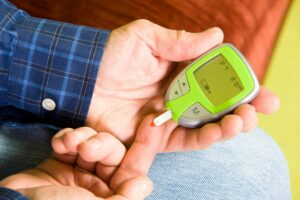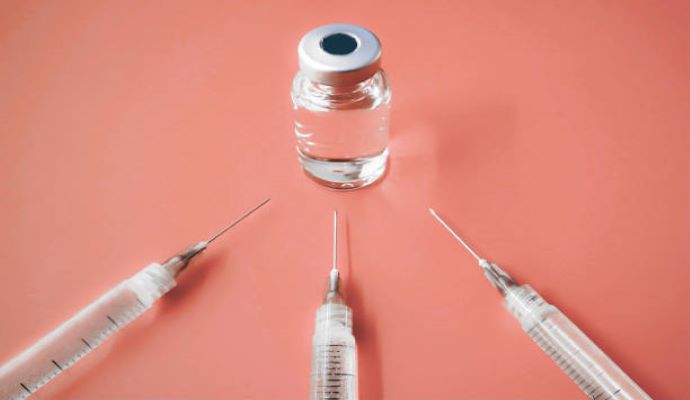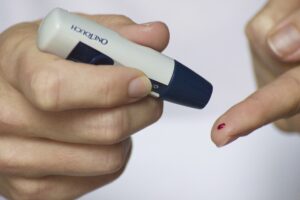Insulin shock, also known as hypoglycemia or low blood sugar, is a critical condition that can occur in individuals with diabetes. It occurs when the blood sugar levels drop to dangerously low levels, leading to a range of symptoms and potentially life-threatening complications. Prompt and appropriate treatment is essential to restore blood sugar levels and prevent further deterioration. In this blog, we will delve into the details of the treatment for insulin shock, covering both immediate interventions and long-term management strategies.
Contents
- 1 What Does”Insulin Shock” Mean?
- 2 Different Treatment Methods for Insulin Shock
- 2.1 Immediate Consumption of Rapid-Acting Carbohydrates
- 2.2 Glucagon Injection
- 2.3 Emergency Medical Assistance
- 2.4 Continuous Glucose Monitoring (CGM) Systems
- 2.5 Adjustment of Insulin Doses
- 2.6 Balanced Meal Planning
- 2.7 Regular Blood Glucose Monitoring
- 2.8 Education and Training
- 2.9 Carry Emergency Snacks
- 2.10 Alcohol Consumption Awareness
- 3 Benefits of Insulin Shock Treatment Methods
- 4 Conclusion
What Does”Insulin Shock” Mean?

“Insulin shock” refers to a state of severe hypoglycemia (low blood sugar) that occurs as a result of an excess of insulin in the body. Insulin is a hormone produced by the pancreas that is crucial in regulating blood sugar (glucose) levels. It helps cells absorb glucose from the bloodstream, which is then used for energy.
In individuals with diabetes, the balance between insulin and glucose can be disrupted, leading to episodes of hypoglycemia. Insulin shock typically occurs when there is an excessive amount of insulin in the bloodstream relative to the amount of glucose available.
Several factors can contribute to insulin shock in people with diabetes, including:
- Insulin Overdose: Administering too much insulin, either through injections or insulin pumps, can cause a rapid and significant drop in blood sugar levels.
- Skipping Meals or Delayed Meals: If a person with diabetes skips meals or experiences a significant delay between meals, it can lead to low blood sugar levels.
- Increased Physical Activity: Engaging in more physical activity than usual without adjusting insulin or food intake can result in low blood sugar levels.
- Alcohol Consumption: Drinking alcohol, especially on an empty stomach or in excessive amounts, can lower blood sugar levels.
Different Treatment Methods for Insulin Shock

Treatment for insulin shock, also known as hypoglycemia or low blood sugar, involves various methods to quickly raise blood sugar levels and address the immediate symptoms. Here is a detailed list of different treatment methods for insulin shock:
Immediate Consumption of Rapid-Acting Carbohydrates
- Administer glucose tablets: These are specifically designed to provide a quick and measured dose of glucose.
- Consume fruit juice: Drinks like orange juice or apple juice contain natural sugars that can rapidly increase blood sugar levels.
- Regular soda or non-diet soda: The sugar content in regular soda can help raise blood sugar quickly.
- Candy or sweets: Hard candies or glucose gels can be effective in treating hypoglycemia.
Glucagon Injection
- Glucagon is a hormone that stimulates the liver to release stored glucose into the bloodstream.
- A glucagon injection is administered in emergencies when the individual is unconscious or unable to swallow.
- Family members, friends, or caregivers should be trained on how to use a glucagon kit.
Emergency Medical Assistance
- In severe cases or when initial treatments are ineffective, it is crucial to seek emergency medical help.
- Emergency medical services (EMS) personnel can administer intravenous glucose to rapidly raise blood sugar levels.
Continuous Glucose Monitoring (CGM) Systems
- CGM systems provide real-time information about blood sugar levels, helping individuals with diabetes and their healthcare providers to monitor and manage fluctuations effectively.
- Alerts on CGM devices can warn users of impending hypoglycemia, allowing for timely intervention.
Adjustment of Insulin Doses
- Regularly review and adjust insulin doses based on factors such as diet, physical activity, and changes in overall health.
- Work closely with healthcare providers to ensure that insulin regimens are appropriate for individual needs.
Balanced Meal Planning
- Adopting a well-balanced diet that includes a mix of carbohydrates, proteins, and fats can help regulate blood sugar levels.
- Regular and consistent meals and snacks can prevent prolonged periods without food.
Regular Blood Glucose Monitoring
- Regularly check blood sugar levels using a glucose meter to detect and address fluctuations promptly.
- Establish a routine for monitoring, especially during periods of increased physical activity or changes in medication.
Education and Training
- Ensure that individuals with diabetes and their caregivers are educated about the signs and symptoms of hypoglycemia.
- Training on how to use glucose meters, administer insulin, and manage emergencies like insulin shock is essential.
Carry Emergency Snacks
- Always have quick-acting carbohydrates on hand, such as glucose tablets or snacks, to address low blood sugar promptly.
Alcohol Consumption Awareness
- Be cautious about alcohol consumption, especially on an empty stomach, as it can contribute to hypoglycemia.
- If alcohol is consumed, ensure that it is done in moderation and with accompanying food.
These treatment methods for insulin shock should be tailored to the individual’s specific needs and should be discussed and coordinated with healthcare providers to ensure optimal management of diabetes and prevention of hypoglycemic episodes.
Benefits of Insulin Shock Treatment Methods

Insulin shock therapy, also known as insulin coma therapy, was historically used in the treatment of certain psychiatric disorders, particularly schizophrenia, in the mid-20th century. However, it’s crucial to note that the use of insulin shock therapy has significantly declined over the years, and it is not a standard or recommended treatment for mental health conditions today. Modern psychiatric treatments have evolved, and more effective and evidence-based approaches are now available.
Historically, some proponents of insulin shock therapy claimed certain benefits, but it’s essential to recognize that these claims are outdated, and the risks associated with the procedure outweigh any potential perceived benefits. The use of insulin shock therapy has been largely replaced by other forms of psychiatric treatment, such as medications, psychotherapy, and other evidence-based interventions.
If you or someone you know is struggling with mental health issues, it is strongly recommended to seek guidance from a qualified mental health professional. They can provide appropriate and contemporary treatment options tailored to individual needs.
